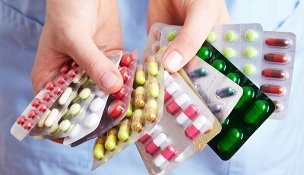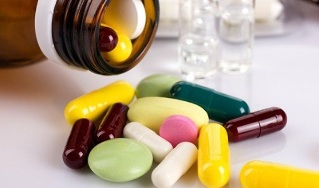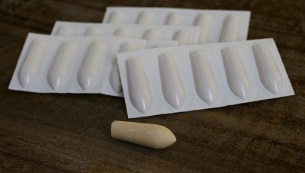
Different drugs for the treatment of prostatitis often have similar ingredients, but differ significantly in price. You should not choose a drug without a doctor's advice, because self-medication can cause not only a lack of effect, but also side effects.
The most effective drugs are those that are selected based on test results and the nature of the disease in men.
Dosage forms for the treatment of prostatitis are tablets, suppositories and solutions for intramuscular administration.
Effective drug selection criteria
Infectious and non-infectious prostatitis differ according to the type of inflammatory process. To choose a drug, it is necessary to undergo a comprehensive examination for an accurate diagnosis, which includes prostate ultrasound and TRUS, analysis of prostate secretion and rectal palpation.
The main treatment for infectious prostatitis is antibiotic therapy. Non-infectious prostatitis is treated with anti-inflammatory drugs; In this case, antibiotics are not used.
Excipients depend on the form of inflammation and the severity of symptoms. In acute urinary disorders, alpha-blockers are prescribed in short courses, with severe pain syndrome - antispasmodics or NSAIDs. In addition, there are a number of medications that have long been used to restore the function of the affected organ.
Each group of drugs contains a number of effective drugs that are often prescribed by urologists. At the same time, some drugs can be replaced by cheaper analogues, such as herbal medicines in the form of rectal suppositories.
According to the form of release, the following drugs are prescribed for prostatitis:
- injection;
- tablets;
- suppository.
instillations and microclusters are also used. The first is in a hospital setting, the second is traditional treatments. Due to its effectiveness and speed of action, doctors prefer to prescribe injections, but this method is not always suitable for treatment at home: not everyone can inject themselves. Men prefer rectal suppositories to relieve inflammation - they are easy to use on their own and are less effective than injections.
Tablet drugs are divided into:
- antibiotics;
- antispasmodics;
- alpha-blockers;
- Non-steroidal anti-inflammatory drugs.
Only a doctor should select and combine medications.
Antibiotics

Antibacterial drugs for the treatment of prostatitis are prescribed only during bacterial or infectious inflammation and after analysis of prostate secretion. Analysis is needed to determine the type of pathogen and the susceptibility of pathogenic microorganisms to antibacterial drugs.
The following groups of drugs are used in the treatment of infectious prostatitis:
- cephalosporins;
- macrolides;
- penicillins;
- fluoroquinolones;
- tetracyclines.
Preparations from the macrolide group can cause a number of side effects, the course of treatment lasts from 7 to 14 days.
Penicillins and tetracyclines are rarely prescribed. This is due to the low bioavailability of drugs and the high risk of developing resistance to the effects of the pathogen.
The new drugs widely used in the treatment of infectious prostatitis are drugs of the fluoroquinolone group. They are characterized by high bioavailability and are also effective in the development of resistance of pathogenic microorganisms to other antibacterial compounds. Fluoroquinolones are not fast-acting drugs because the course of treatment takes an average of 28 days. These drugs rarely cause side effects.
Available both in tablet form and as a solution for injection.
Antibacterial drugs are not used for non-infectious prostatitis.
Dosage and exact treatment regimen are selected by the doctor based on the analysis. These drugs are not used for prostatitis caused by fungal microflora, instead antifungals are used.
Antispasmodics
These drugs relieve muscle spasms of the prostate gland, making patients feel better. They are used in both acute and chronic diseases.
Chronic prostatitis medications
The basis of treatment of chronic prostatitis is bioactive drugs that normalize the trophism of the prostate gland and eliminate inflammation. Their composition is based on biologically active peptides obtained by the extraction of prostate glands in cattle.
Instructions for use:
- chronic prostatitis;
- prostate adenoma;
- infinity.
The course of treatment lasts up to 15 days. Candles are used twice a day, morning and evening, needles are made once a day.
Medications work as follows:
- normalization of urodynamics;
- inflammatory relief;
- reduction of edema;
- elimination of pain syndrome;
- increasing power.
Medications normalize prostate trophism by stimulating metabolic processes in the body. In chronic prostatitis, drugs in this group are prescribed twice a year for both treatment and prevention. In acute inflammation, the doctor may prescribe medication after a course of antibiotic therapy to restore normal prostate function.
Non-steroidal anti-inflammatory drugs
NSAIDs are prescribed to relieve inflammation and reduce pain in prostatitis. It is used as a symptomatic therapy for both infectious and non-infectious inflammation.
Bacterial prostatitis often causes a rise in body temperature. 38. At values above 5 degrees, it can be broken down by drugs of the sulfonamide class.
Alpha blockers

The second treatment for prostatitis and adenoma is a group of alpha-blockers. Their actions are based on blocking adrenergic receptors located in the bladder neck. Drugs in this group reduce the tone of the bladder and relax the smooth muscles of the prostate. This reduces swelling of the body and facilitates urination. Indications for the use of these drugs are disorders characterized by the risk of developing acute urinary retention.
Drugs of the alpha-blocker group have a long list of contraindications and side effects. First of all, their danger has a negative impact on the cardiovascular system.
Possible side effects:
- migraine;
- drowsiness;
- power loss;
- fainting;
- hypotension.
There are known cases of developing retrograde discharge while taking these drugs.
Alpha blockers are available in capsule or tablet form. Generally, doctors prescribe 1 tablet a day for one to two weeks. Due to the large number of contraindications and side effects, drugs of the alpha-blocker group should be selected by a physician.
Alpha blockers are part of a comprehensive treatment for prostatitis, but not first-line medications.
Herbal medicines and homeopathy
Homeopathic and herbal medicines are widely used in the treatment of chronic prostatitis. Such drugs are prescribed for a long time, because the effect is visible after a few weeks.
Medications are also prescribed to prevent chronic prostatitis.
This group of drugs has no contraindications other than individual intolerance. Herbal remedies should be taken for a long time because of their slow action. Outcome of treatment can be evaluated at least two weeks after taking the drug.
Dairy products

The cheapest drugs for the treatment of chronic diseases are rectal suppositories with natural extracts. Candles containing propolis and bee products, pumpkin oil or ichthyol are used in therapy. Preparations based on bee products have many names.
Such suppositories eliminate inflammation, have a bactericidal effect and increase immunity. Propolis suppositories can also be made at home.
Natural rectal suppositories are used twice a day. The course of treatment lasts at least 10 days. The exact treatment regimen is selected by the doctor after a thorough examination of the patient.
It is not possible to determine the best drug of all types, because the drug must be selected individually in each case.
























